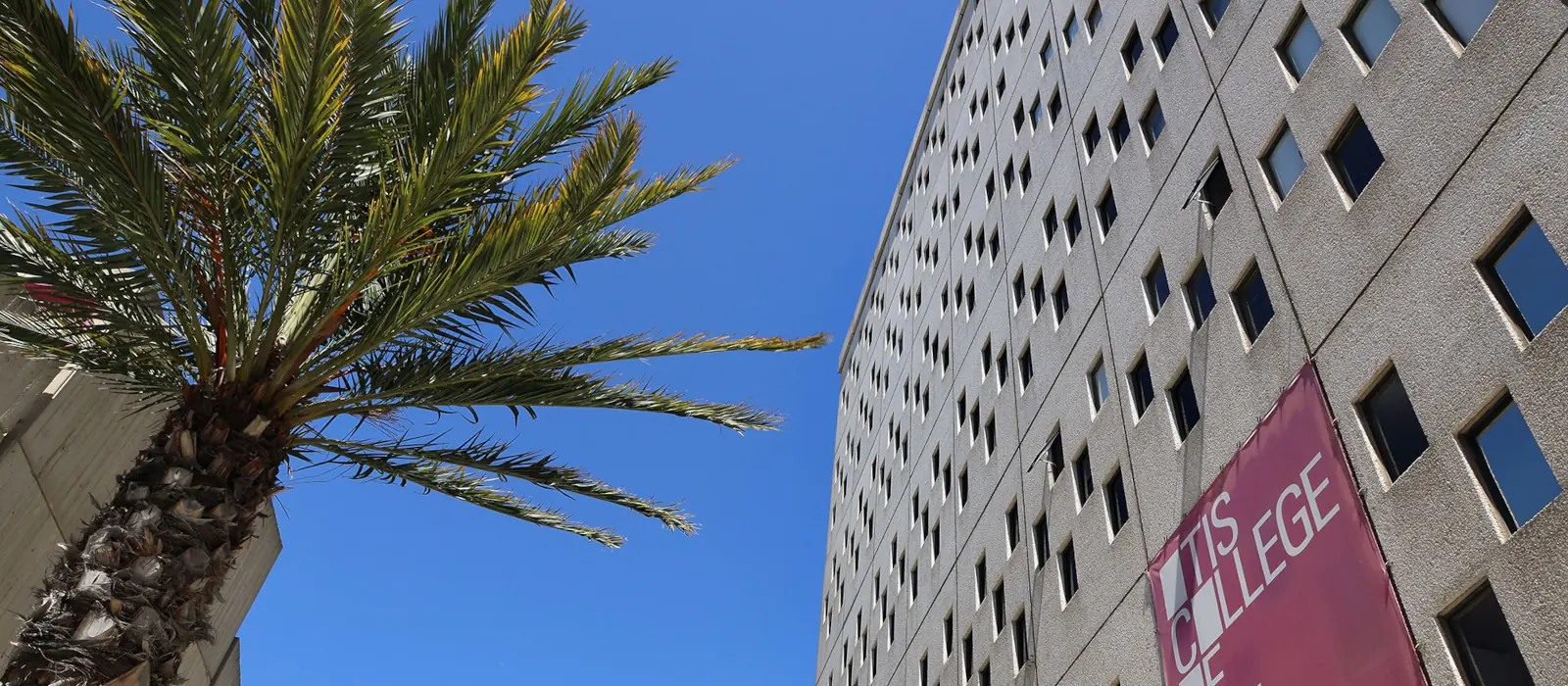Otis College’s Institutional Learning Outcomes are action words that describe our approach to learning and what we commit to our students.
Institutional Learning Outcomes (ILOs) are the measurable skills, abilities, knowledge, and values that every Otis graduate will be able to do or demonstrate after completing an Otis education.
Institutional Learning Outcomes
Otis Students Will...
Otis students will demonstrate:
- Disciplinary knowledge and skills
- Proficiency in industry-standard skills, technologies, and processes
- Cross-disciplinary awareness and practice
- Audience-focused research, historical context and field-specific discourse
- Capacity to identify and solve creative problems
Otis students will demonstrate:
- Innovation
- Experimentation and play
- Challenge to the status quo
- Bravery in their work and their interactions with others
Otis students will demonstrate:
- Self-awareness
- Capacity to communicate (orally, written, and/or visually) about their practice
- Capacity to seek, assemble, evaluate, and ethically apply information and ideas from diverse sources
- Analysis of both ethical and aesthetic impacts of art and design
Otis students will demonstrate:
- Understanding of themselves as parts of a larger whole made up of human and non-human beings
- Awareness of positionality – in the world, their field, their communities
- Ability to work well, collaborate, and build relationships across differences in identity, perspective, aesthetics, and disciplines
- Integration of skills, information, and concepts
Otis students will demonstrate:
- Ability to define aspirations, future goals and their role within the creative economy
- Awareness of audience and ability to cultivate relationships with others in their chosen fields
- Compelling presentation and exhibition skills, through Annual Exhibition, Capstone, and portfolios
- Proficiency in time and project management
- Career readiness, as evidenced by strong interpersonal skills, self-advocacy, adaptation, autonomy, initiative, and willingness to both receive and offer feedback
Program Specific Learning Outcomes
Core Curriculum
Majors
Undergraduate Programs
- BFA in Animation
- BFA in Animation: Motion Design
- BFA in Environmental Design: Architecture/Landscape/Interiors (2022)
- BFA in Environmental Design: Interiors + Furniture (2022)
- BFA in Fashion Design
- BFA in Fine Arts: Painting
- BFA in Fine Arts: Photography
- BFA in Fine Arts: Sculpture/ New Genres
- BFA in Game and Entertainment Design
- BFA in Graphic Design
- BFA in Illustration
- BFA in Product Design
- BFA in Toy Design
Graduate Programs
Minors
- Interdisciplinary Studies
- Minor in Art and Design Education
- Minor in Art History
- Minor in Concept Art
- Minor in Contemporary Clay
- Minor in Creative Writing
- Minor in Digital Media
- Minor in Entrepreneurship
- Minor in Graphic Design
- Minor in Illustration
- Minor in Motion Design
- Minor in Painting
- Minor in Photography
- Minor in Product Design
- Minor in Sculpture/ New Genres
- Minor in Sustainability
